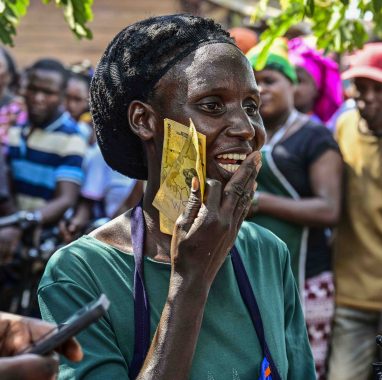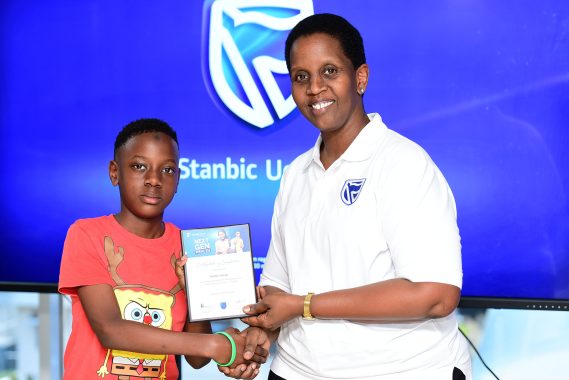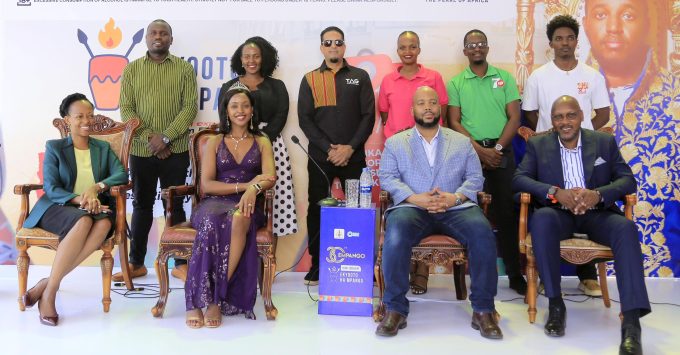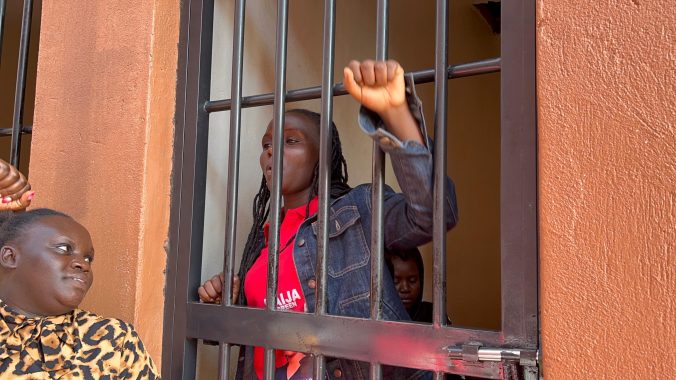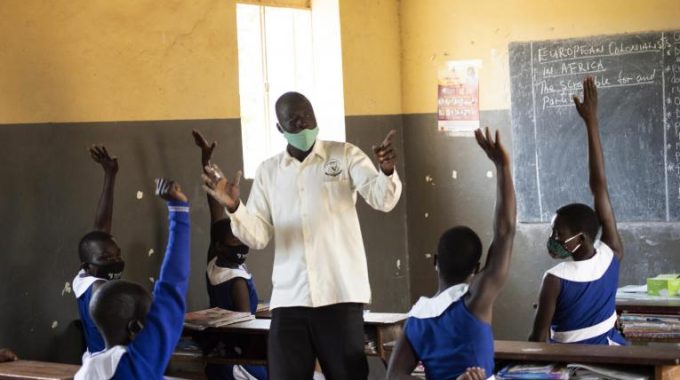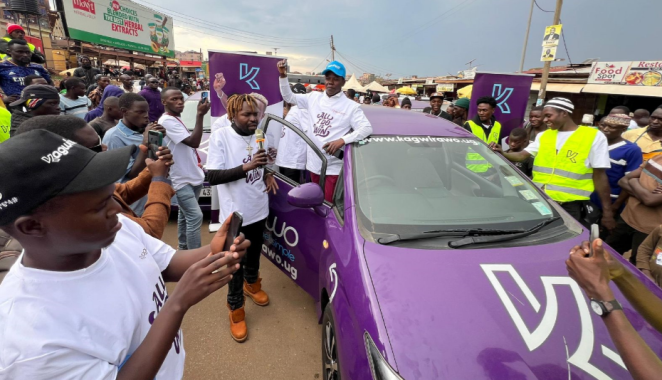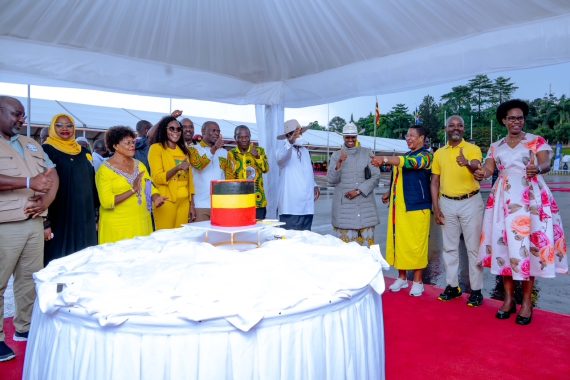In Nairobi on June 27, 2025, Stanbic Bank and the German development agency GIZ entered a new regional partnership “Promoting Green Businesses and Jobs for the Green Transformation project in Kenya, Tanzania and Uganda,” aimed at supporting women’s economic development and advancing environmental sustainability.
This collaboration is set to strengthen green innovation across East Africa by supporting women-led enterprises that are creating business solutions with a positive environmental impact.
The partnership builds on the efforts of the Women Entrepreneurs for the Green Transformation in Africa (WE4D) programme, which supports women-led green businesses committed to sustainable development. This initiative will foster the growth of green/greening women-led micro and small enterprises in Kenya, Tanzania and Uganda through the provision of business training, business coaching and access to finance for the participating enterprises that enable them to drive meaningful change in the green economy.
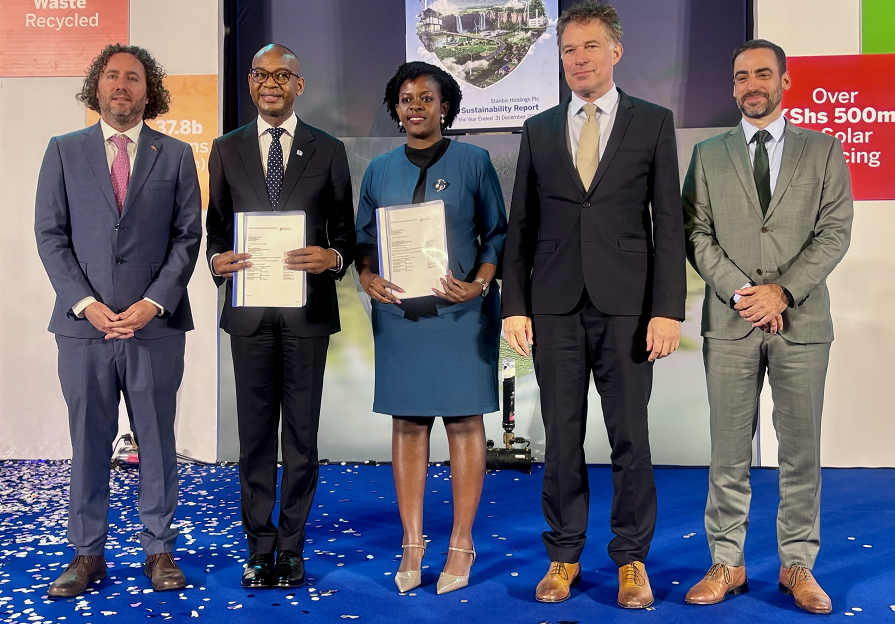
A key objective of the Stanbic/GIZ partnership is to increase training opportunities for women and for businesses that contribute to the green transformation in the region.
Another intended outcome includes opening more employment opportunities for women in green supply chains, for example, in renewable energy, circular economy, waste management, blue economy, ecotourism and sustainable agriculture.
The two-year program is being implemented through the three Stanbic business incubators located in each of the three countries and will involve four cohorts, entailing classroom training, workshops, business visits and coaching.
The announcement of the new program also coincided with the launch of Stanbic Kenya Holdings’ 2024 sustainability report under the theme, ‘Deepening Impact: Building a Sustainable Future’.
Lee Kinyanjui, the Cabinet Secretary for Investments, Trade, and Industry, officiated at the event, which showcased the impact Stanbic has created over the past year. Others present were Stanbic Bank management, employees, impact driving partners, Kenya government officials and other private sector players.
Kinyanjui acknowledged Stanbic Bank for driving economic growth, specifically contributing to environmental conservation by contributing to the construction of the Nairobi Expressway.
He further highlighted the relevance of supporting SMEs through financial inclusion as one of the ways that would uplift Africa’s growing entrepreneurial landscape.
He quoted from the Economist that ‘Africa has too many businesses but too little business ‘and emphasized the need for financial institutions and other stakeholders to play their part in shaping the future of business in Africa.
He then commended the work done by Stanbic Foundation and the partners who drive impact, including GIZ, Microsoft, ATC and the United States African Development Fund.
In Uganda, WE4D is being commissioned by the German Federal Ministry for Economic Cooperation and Development (BMZ) and supported by the European Union and the Government of Norway.
GIZ Uganda, through the WE4D programme, will be collaborating with the Stanbic Business Incubator Limited (SBIL), in partnership with the Ministry of Gender, Labour, and Social Development (MGLD). SBIL is the Stanbic Uganda Holdings Limited subsidiary responsible for enterprise development and capacity building.
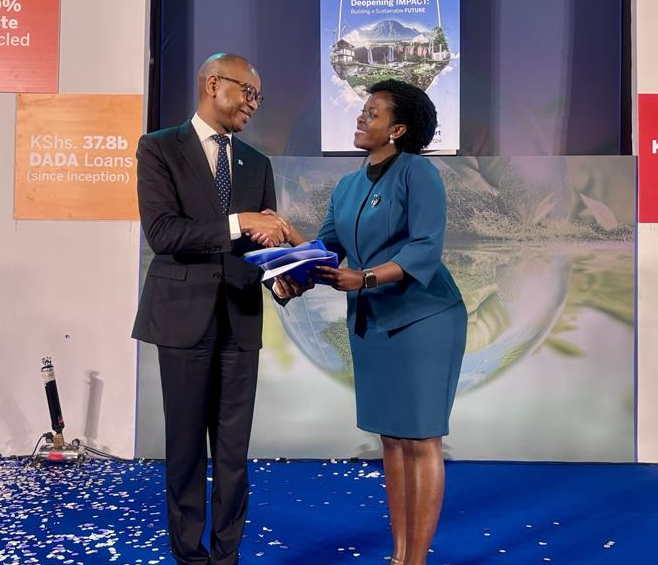
Speaking on the sidelines of the event, Sheila Agaba, the Business Manager at Uganda’s Stanbic Business Incubator, said, “The targeted districts in Uganda are Kampala, Wakiso and Mukono where the eligible participating women will benefit from the provision of business training, business coaching and access to finance.”
“The program intends to attract green female led businesses that have a financing need to scale their green businesses. The initiative will also support these women SMEs prepare for
loan uptake at a subsidized rate providing tangible solutions to the hurdles faced to acquire credit in the past. Business owners will receive a personal touch by an expert in the form of coaching for a three month period in addition to group training done in line with green entrepreneurship,” Agaba added.
Agaba said the program will unlock the potential of green businesses, particularly those led by women, to become key players in the sustainable economic transformation of East Africa, calling it an investment in both the future of green industries and the empowerment of women entrepreneurs.
SMEs that qualify for participation must meet the following criteria:
- Female owned and female led enterprises or Businesses that employ majority women
- Must be legally registered and operational in Uganda; with a minimum of two years in operation: evidence of historical performance at any stage of the value chain.
- Have an annual turnover of at least UGX 70 million over the past two years.
- Existence of financial records: Verified Bank statement for the last 12 months.
- Companies must operate in the sectors of: Sustainable agriculture/Agro-processing, Renewable energy, Circular economy & Waste management.
- Must be seeking investment to induce business transformation and growth.
- At least two full time staff.
Call to action: This 2-year program will be implemented in 4 cohorts entailing classroom trainings, workshops, business visits & coaching, local and regional market integrations, business financing support and graduation. Business owners who fit the criteria can apply to join the program via the link: https://survey.zohopublic.com/zs/QWESws





